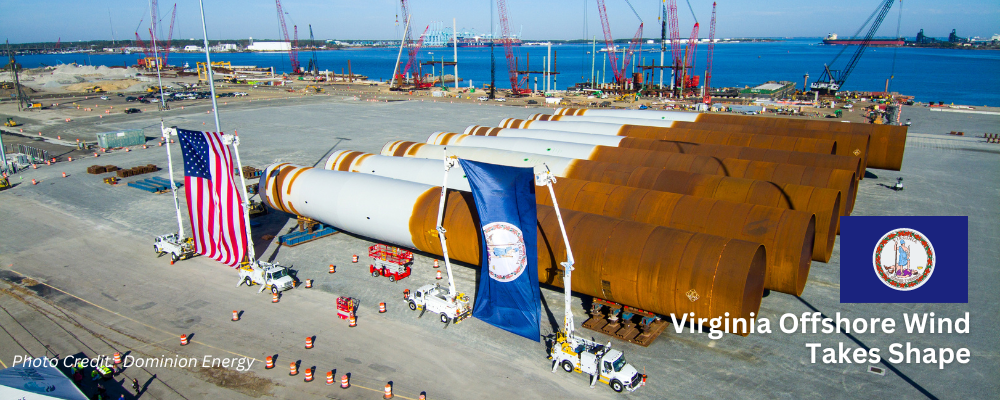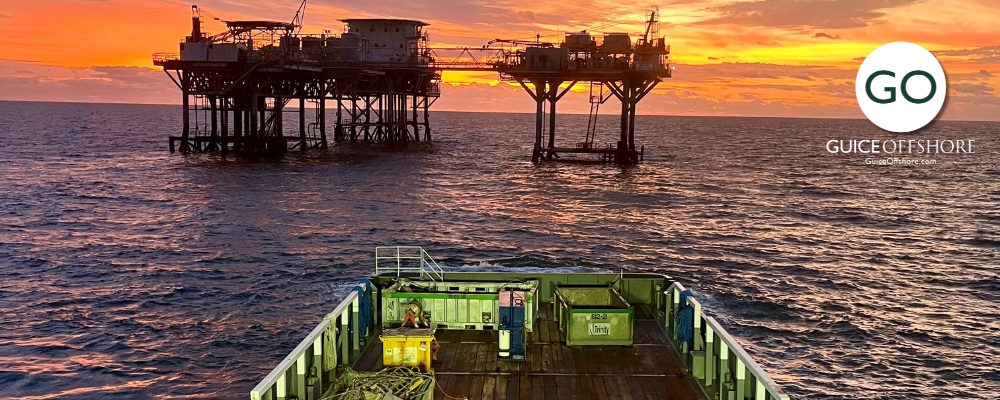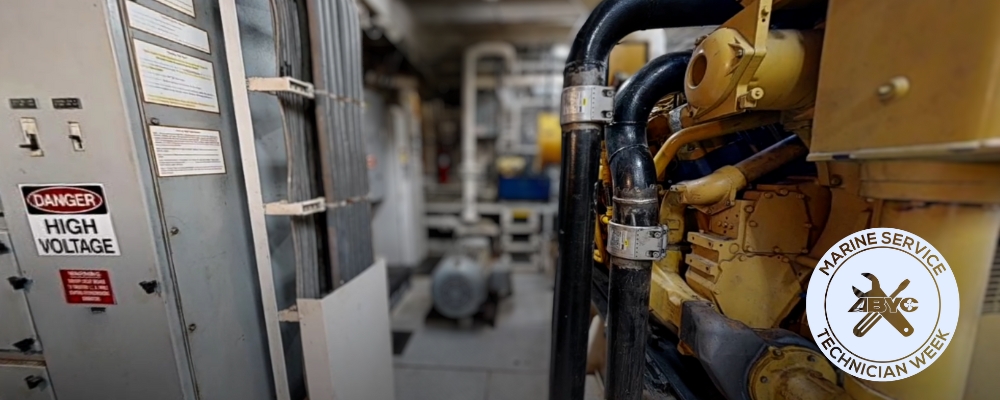October 31, 2023 marked the official federal government approval of the Coastal Virginia Offshore Wind (CVOW) commercial project – the fifth approval of a commercial-scale, offshore wind energy project since 2021. The announcement supports the nation’s goal of deploying 30 gigawatts of offshore wind energy capacity by 2030, following the approval of the Vineyard Wind 1, South Fork Wind, Ocean Wind 1, and Revolution Wind projects. When completed, these five projects will collectively add more than 5 gigawatts of clean, renewable energy to America’s electricity grid, which is enough to power more than 1.75 million homes.
Located approximately 23.5 nautical miles offshore Virginia Beach, the CVOW commercial project is the largest yet, and would provide about 2,600 megawatts of clean, reliable offshore wind energy, capable of powering over 900,000 homes. The project is expected to provide about 900 jobs each year during the construction phase and support an estimated 1,100 annual jobs during the operations phase, generating vital economic development for Virginia’s Hampton Roads area and supporting investments in the Virginia coastal region as a hub for offshore wind development and support.
“The announcement is the result of hard work by the BOEM team and our ongoing conversations with Tribes, federal agency partners, state and local leaders, ocean users, industry and others to help inform the development of this project every step of the way,” said Bureau of Ocean Energy Management (BOEM) Director Elizabeth Klein. “We look forward to continuing to work together to responsibly develop this clean energy resource and ensure a sustainable future for generations to come.”
“More progress and economic opportunity are on the horizon as we put to use every tool available to bring offshore wind benefits to American workers and communities nationwide,” White House National Climate Advisor Ali Zaidi said.
The announcement comes on the heels of an October 27 event in Portsmouth, Va., to celebrate the arrival of the first eight monopile foundations for the CVOW project. Principal Deputy Assistant Secretary for Land and Minerals Management Laura Daniel-Davis delivered remarks, and was joined by BOEM Director Klein, Bureau of Safety and Environmental Enforcement Director Kevin Sligh, the Governor and state, local and industry leaders. The foundations will be staged at the Portsmouth Marine Terminal until construction begins next spring.
Since 2021, the Department of the Interior has approved the nation’s first five commercial-scale, offshore wind energy projects. BOEM has held four offshore wind lease auctions totaling almost $5.5 billion in high bids, including a record-breaking sale offshore New York and the first-ever sales offshore the Pacific and Gulf Coasts. BOEM has also advanced the process to explore additional opportunities for offshore wind energy development in the U.S., including the Gulf of Maine and offshore Oregon and the U.S. Central Atlantic coast. The Department has also taken steps to evolve its approach to offshore wind to drive towards .
With this latest milestone, BOEM remains on track to complete reviews of at least 16 offshore wind energy project plans by 2025, representing more than 27 gigawatts of clean energy.
After carefully considering the analysis and alternatives in the Final Environmental Impact Statement (EIS), including public comments on the Draft EIS, the Department has approved a combination of Alternative B and Alternative D-1, which includes up to 176 wind turbine generators, each with a capacity of 14.7 megawatts. This combination will reduce impacts to navigation and a known fish haven, allow for ocean co-use, and meet the energy needs of Virginia. Invaluable feedback was gathered through nation-to nation consultations with Tribes, input from federal, state and local agencies, and from public meetings and comments in analyzing the project’s potential environmental impacts and developing possible alternatives and mitigation measures.
The Record of Decision includes measures aimed at avoiding, minimizing and mitigating the potential impacts that may result from the construction and operation of the project. Among those measures, Dominion Energy has committed to establishing fishery mitigation funds to compensate recreational and commercial fisheries for any losses directly arising from the project. Dominion Energy has also committed to measures, including vessel speed restrictions and construction clearance zones, to reduce the potential for impacts to protected species, such as marine mammals, sea turtles and Atlantic sturgeon.
To view the Dominion Energy Project Facts web page, click here.
The Record of Decision will be published in the Federal Register later this week and can be found on the BOEM website.
The Department of the Interior’s Bureau of Ocean Energy Management (BOEM) is responsible for America’s offshore energy and mineral resources. The bureau promotes energy independence, environmental protection and economic development through responsible, science-based management of energy and mineral resources on the U.S. Outer Continental Shelf.
First Monopile Foundations for Dominion Energy’s Coastal Virginia Offshore Wind Commercial Project Arrive at Portsmouth Marine Terminal
- Coastal Virginia Offshore Wind (CVOW) remains on budget and on schedule
- Dominion Energy expects to begin offshore construction in early 2024 and to conclude in late 2026
- These eight monopile foundations are the first of 176 to be delivered and staged in Portsmouth
Dominion Energy’s Coastal Virginia Offshore Wind (CVOW) commercial project took one more step to starting construction when the first eight monopile foundations were safely offloaded at Portsmouth Marine Terminal on October 27, 2023. There, they will be staged until installation of the 2.6-gigawatt project, enough electricity to power 660,000 homes, begins in the spring of 2024. The foundations, which are a single vertical, steel cylinder, are being manufactured by global leader EEW SPC and will be installed into the sea floor to support the wind turbine generators.
“The delivery of the first foundations is further evidence that our Coastal Virginia Offshore Wind project continues to move forward on time and on budget to provide reliable, affordable and increasingly clean energy to our customers,” said Bob Blue, Dominion Energy’s chair, president and chief executive officer. “This regulated offshore wind project positions us, and the Commonwealth of Virginia, as leaders in the development of offshore wind and provides many benefits for our customers and local economies.”
CVOW, the largest offshore wind project under development in the United States, is expected to generate fuel savings of $3 billion for customers during the project’s first 10 years of operation.
The project continues to advance through the federal permitting process, receiving the Final Environmental Impact Statement from the Bureau of Ocean Energy Management (BOEM) last month.
Offshore wind’s economic development and jobs benefits are transformative for Hampton Roads and the Commonwealth. More than 750 Virginia-based workers – nearly 530 in the Hampton Roads region – have been engaged on the CVOW project or with other businesses supporting CVOW, including redevelopment work at the Portsmouth Marine Terminal, construction of the offshore wind Monitoring and Coordination Center, maritime provisioning, ship repairs, divers, heavy lift and rigging, cyber security, food service and hospitality. More than 1,000 local jobs will be needed to support ongoing operations and maintenance of this facility after the project is commercial.
The offloading of the foundations was supported by union workers from the International Longshoremen’s Association, the largest union of maritime workers in North America.
Click here to view the Spanish version of this story.
About Dominion Energy
About 7 million customers in 15 states energize their homes and businesses with electricity or natural gas from Dominion Energy (NYSE: D), headquartered in Richmond, Va. The company is committed to providing reliable, affordable, and increasingly clean energy every day and to achieving Net Zero emissions by 2050. Please visit DominionEnergy.com to learn more.
Guice Offshore Has the Jones Act-Qualified Vessels To Help Meet America’s Offshore Wind Industry Needs
Guice Offshore’s growing fleet of Jones Act-compliant, dynamically positioned offshore supply vessels, mini supply vessels and platform vessels is well positioned to help meet our nation’s wind energy infrastructure installation and service goal deadlines, whether it’s crew transfer, service, cable laying, subsea work like scour protection or equipment transportation.
Guice Offshore vessels are well-maintained, well-manned and feature ample accommodations and sought-after equipment such as A-frames, cranes, winches, moonpools, deck sockets and essentials to facilitate a spectrum of highly specialized offshore projects.
We hold strategic partnerships throughout the United States and maintain our highly capable vessels in accessible locations for quick response to myriad needs of the many specialty industries we serve, including Offshore Wind.
Headquartered in Covington, Louisiana with an operations base in Lafayette, Louisiana and a northeastern Rhode Island office, Guice Offshore operates a 15-vessel fleet of U.S. Flag offshore vessels that includes Subchapter L & I mini supply vessels, multi-purpose and platform vessels in the 150-ft, 170-ft and 205-ft class with DP1 and DP2 certifications.
Guice Offshore operates from coast to coast in North America and select international locales.
Additionally, our subsidiary, GO Marine Services, a catering and offshore labor contractor, supports mission requirements that help minimize mobilization time and expense for Guice Offshore customers with special services like marine riggers, roustabouts and certified protected species observers in compliance with marine mammal regulatory requirements.
For charter inquiries, please contact David Scheyd at david.scheyd@guiceoffshore.com or (985) 273-2769.



